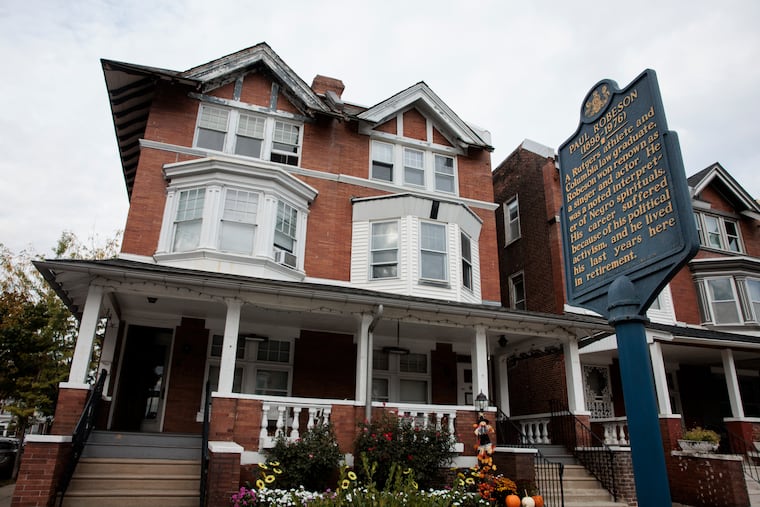Paul Robeson’s former home, where he lived until 1976, is set to reopen as a museum.
The Paul Robeson House and Museum, a pivotal educational institution in West Philadelphia, is poised to reopen its doors to the public following comprehensive renovations. Located at the intersection of Walnut Street and 50th Street, the museum had been closed since August 2024 while work was completed on the annex, a portion of the historic building.
The grand reopening ceremony is scheduled for Friday, marking the culmination of renovation efforts aimed at transforming the space into a vibrant cultural hub. Attendees can expect a celebratory event featuring performances by the Tyehimba African Drum Ensemble and remarks from notable figures including Philadelphia City Councilperson Jamie Gauthier and Pennsylvania State Senator Vincent Hughes.
On reopening day, the museum will offer free admission, making it accessible for all visitors. The site holds deep historical significance, as it was the residence of the iconic Paul Robeson for the last decade of his life. Robeson, born in 1898 in Princeton, New Jersey, was a multifaceted individual—an acclaimed actor, singer, civil rights activist, and attorney. He resided in the house with his sister, Marian R. Forsythe, until his passing in 1976.
Renovations were primarily funded by a million grant from the Mellon Foundation, which the West Philadelphia Cultural Alliance plans to utilize to enhance the museum’s offerings. The funding was divided between the Philadelphia Robeson House and the original Robeson House in Princeton, reflecting their shared dedication to preserving Robeson’s legacy. According to interim executive director Azsherae Gary, the renovated annex has transformed previously dim spaces into a welcoming environment suitable for events and artistic endeavors.
The revitalized museum includes upgraded facilities such as a new kitchen, enabling it to host a variety of events. The Cultural Alliance is preparing for significant milestones, including the 50th anniversary of Robeson’s death in 2026 and the United States’ semiquincentennial.
The Robeson House aims to educate the public about the integral role Robeson played in American history, highlighting his groundbreaking achievements at Rutgers University as the third Black student and first Black football player. The museum showcases memorabilia that captures his contributions, friendships, and the various challenges he faced due to his outspoken political beliefs.
For visitors, the house serves not only as a museum but also as a reminder of Robeson’s commitment to social justice and humanitarianism. The grand reopening of the Paul Robeson House and Museum at 4951 Walnut St. is set for 11 a.m. on Friday, and admission is free for all who wish to commemorate the legacy of this American icon. More information can be found at PaulRobesonHouse.org.







